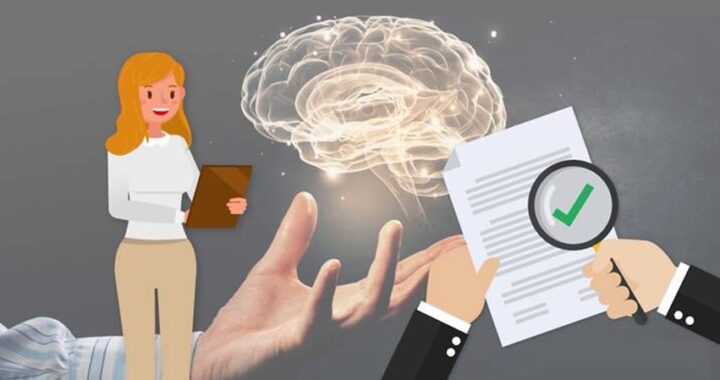Essential Supplements for Brain Enhancement
Physical fitness is highly valued by us; we frequently visit the gym and run or sprint around the block. But how can you strengthen your cognitive abilities? Your focus will improve, your ability to solve problems will improve, and you’ll be more prepared to play trivia with your pals. Your brain health can benefit from eating a balanced diet, working out frequently, and socializing. Look into the supplements that are currently accessible, paying special attention to the vitamins they include if you want to increase your mental capacity in another way.
The vitamins in the supplements are essential for the well-being of the heart and brain. They can help you minimize your risk of heart disease and stroke, increase blood pressure, protect your brain, and enhance cognitive performance. Supplements for the brain include food ingredients, vitamins, minerals, and plants.
Brain booster pills are intended to complement your diet, as their name suggests. A business like Sage Nutrients may have the information you’re looking for. When attempting to improve your brain’s health, keep in mind that food is the best source of vitamins. However, these vitamins for the brain can also be helpful.
Vitamin B12
Long-term studies on the relationship between low B12 levels and memory loss have been conducted. B12 deficiency is more prevalent in severe vegetarians and people with digestive or stomach problems. The amount of B12 that older persons consume is influenced by their age since they have lower amounts of stomach acid. The reason for this is that older persons have lower quantities of stomach acid. Your levels of B12 may also decrease if you take the diabetes medication metformin. Anti-inflammatory drugs, proton pump inhibitors, and birth control pills can all lower B12 levels.
Fish and poultry are two examples of foods that contain vitamin B12. Vegetarians can choose to have enriched cereal for breakfast. It’s crucial to take note that certain people may experience problems with B12 absorption as a result of illnesses or drugs. Lower risk of heart disease, better mood, and the preservation of healthy blood and neurological systems are just a few advantages of vitamin B12.
Vitamin D
Bones are made stronger by vitamin D, which also prevents osteoporosis. Additionally, it benefits brain function. To completely understand vitamin D’s effect on brain function, more research is required. We are aware that when the proper dosage is taken, good things happen. Preventing mental health problems like depression, schizophrenia, Alzheimer’s, and dementia may be made easier by maintaining healthy vitamin D levels.
Your skin creates more vitamin D when exposed to healthy sunlight. Get your regular dose of vitamin D by going for a short, vigorous stroll in the morning, just after sunrise. Vitamin D levels are also high in fish, eggs, and cheese. Vitamin D pills are occasionally advised if you don’t get enough sunlight, eat a restricted diet, or have difficulties absorbing nutrients.
Q10 Coenzyme
The antioxidant coenzyme Q10 is quite effective. Your body produces it on its own. Your levels fall as you get older or when you are diagnosed with certain diseases, such as heart disease. The use of statin drugs may also cause a decrease in coenzyme levels. These medications are often used to lower cholesterol. It is present in meat, fish, and nuts, but replenishing what is lost through food alone can be difficult. Therefore it may be required to take a supplement.
Vitamin B1 (Thiamin)
The nerve system and the brain communicate more effectively when thiamin is present. You could be lacking in B1 for a number of different reasons. These are only a few instances, along with poor diet, morning sickness during pregnancy, and cancer patients. Thiamin can be found in foods, including sunflower seeds, wheat, pork, oranges, potatoes, and more. Short-term memory loss is one of the signs of B1 deficiency, which can agitate and tense people.
Ashwagandha
You can boost your memory and reduce stress by taking ashwagandha. It also aids in maintaining attention and concentration. An example of an adaptogen is ashwagandha. Adaptogens assist your body cope with stress by adjusting your hormone levels. Additionally, it raises immunity, decreases blood sugar, and enhances physical performance.
Bacopa Monnieri
Bacopa Monnieri has been utilized for ages in conventional Ayurvedic treatment. Despite being cultivated all around the world, the best Bacopa Monnieri comes from China and India. It is one of the herbs that are most frequently used in herbal therapy. In actuality, it was among the earliest plants studied in human scientific trials. Active substances found in Bacopa Monnieri, known as bacoside A and bacoside B, have been demonstrated to have antioxidant qualities, enhance memory, and lessen anxiety.
PQQ
PQQ is a special nutrient that is produced by the body and has been demonstrated to enhance mental acuity, memory, and cognition. PQQ can be consumed as a supplement or as an ingredient in a balanced meal. The word “enlightenment” in Japanese is where PQQ gets its name. In 1999, Japanese scientists made the discovery. When searching for a compound to aid plants in thriving in challenging conditions (like drought), these researchers instead found PQQ has advantages for humans as well.
Our bodies and brain cells contain a chemical called PQQ that resembles a vitamin. Patients with Alzheimer’s disease, Parkinson’s disease, stroke, and other illnesses have exhibited improved cognition, memory, and mental vigor in both animal and human studies.
Astaxanthin
The antioxidant astaxanthin can be found in fish and microalgae. One of the few carotenoids that can do so is this one. By reducing UV damage, the anti-inflammatory astaxanthin may lengthen your life. According to some research, astaxanthin can prevent UV ray damage, reduce inflammation, and enhance eye health.
Rosea Rhodiola
A popular adaptogen is Rhodiola Rosea. It is a perennial plant that grows successfully at high elevations in the mountains of Asia, Europe, and North America. The root of Rhodiola Rosea has been used for thousands of years in traditional medicine to reduce fatigue and improve concentration, focus, and memory.
L-theanine
Nature contains L-theanine. Green tea also contains this amino acid. It is a non-essential amino acid that has been shown to pass the blood-brain barrier and help with anxiety and memory loss.
The brain’s adenosine receptors, which are crucial for managing stress and mood, bind to L-theanine. Dopamine, serotonin, and GABA are three neurotransmitters that are crucial for controlling mood when these receptors are stimulated by L-theanine. Because L-theanine supplements can help regulate dopamine levels in the brain, they may be helpful for those with depression or anxiety.
L-theanine aids with stress management, relaxation, and perhaps even better sleep. Studies show that taking 100 milligrams of L-theanine 30 minutes before bed can help reduce anxiety and promote calmness.
Final Reflections
These are only a few of the vitamins that can help in the growth of a strong, healthy brain. Think about Cognitive Edge at www.sagenutrients.com if you are having trouble remembering things, staying focused, or are confused. If you think you need further help, you can also talk to your doctor.


 Veneers: A Popular Cosmetic Solution for a Beautiful Smile in London
Veneers: A Popular Cosmetic Solution for a Beautiful Smile in London  Gifted Educational Programs
Gifted Educational Programs  Innovations in Health Screenings: Exploring the Latest Technologies in Clinic Services
Innovations in Health Screenings: Exploring the Latest Technologies in Clinic Services  Dental Crowns –Restoring Strength, Function, And Aesthetics.
Dental Crowns –Restoring Strength, Function, And Aesthetics.  One-Person Wonder: Making Waves in the Massage Industry in Gunma
One-Person Wonder: Making Waves in the Massage Industry in Gunma  How Cataract Surgery in Nashville Improves Vision and Quality of Life
How Cataract Surgery in Nashville Improves Vision and Quality of Life